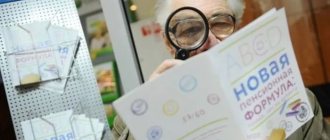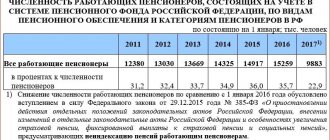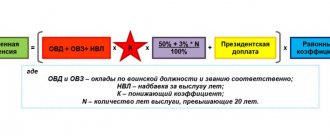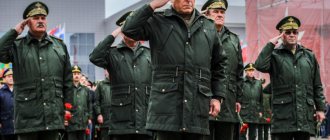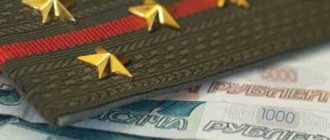From August 1, 2020, working pensioners in Russia will have their pensions increased.
The increase will be individual in nature - depending on the length of service for the year and the amount of remuneration. In this case, the maximum possible increase will not exceed three points, with the cost of one pension point being 81 rubles 49 kopecks.
As a result, the maximum increase in pensions for working pensioners in Russia from August 1, 2020 will be 235.74 rubles.
The recalculation of the insurance pension is carried out automatically. There is no need to submit an application to the Pension Fund for this.
The average pension for a working pensioner today is 13.3 rubles. Last year, as a result of recalculation, the average increase was 169 rubles.
An increase in the pension of working pensioners through recalculation occurs annually, however, the indexation of pensions for this category of citizens has been frozen since 2020.
Last year, pensions were recalculated for 11.8 million pensioners.
Since 2013, the growth of pensions for this category of citizens has been:
2013 - 10.7 thousand rubles.
2014 - 11.6 thousand rubles.
2015 - 12.8 thousand rubles.
2016 - 13.2 thousand rubles.
2017 - 13.8 thousand rubles.
2018 - 14.2 thousand rubles.
Prohibition on indexation of pensions for working pensioners
Working pensioners during the period of work do not have the right to index the amount of a fixed payment to the insurance pension. However, in the event of dismissal, the pensioner will receive the amount of the insurance pension and a fixed payment to it, taking into account the indexation and adjustment that took place during the period of his work, starting from the 1st day of the month following the month of termination of work. Also see:
- «Is it possible for a pensioner to resign to index his pension and get a job again??»;
- «How long does it take to increase your pension after dismissal??».
How have pensions changed over the last 5 years?
In recent years, there have been many adjustments to the pension system. Pension payments were subject to indexation every year, thereby increasing, even if only slightly. For pensioners who continue to work, indexation was frozen. This happened because the country experienced a long crisis and the state budget became too small.
Since the economic situation will improve in 2020, the government will index pension payments to the inflation rate. Officials are not going to save on increasing payments to pensioners.
Who is entitled to an increase in pension from August 1, 2020
If the pensioner continues to work, then a recalculation of his insurance pension may be due to an increase in the size of the IPC (that is, pension points). Pension points can be increased due to insurance premiums paid for the employee by the employer.
In this regard, from August 1, 2020, working pensioners for whom policyholders (employers) paid insurance premiums in 2017 will receive an increased pension. However, the increase will only affect recipients of old-age and disability insurance pensions.
The territorial body of the Pension Fund of the Russian Federation recalculates the old-age insurance pension or disability insurance pension from August 1, 2020, without an application (Clause 3, Part 2, Part 4, Article 18 of Law No. 400-FZ). Thus, working pensioners do not need to contact the Pension Fund and write an application for recalculation. If insurance premiums have been paid for a pensioner, his pension will increase automatically. Pensioners should really feel the increase in September 2020.
Improvement through indexing
The indexation of pension payments deserves special attention, and although indexation of pensions is not planned from August 1, we can expect it to happen a little earlier. Previously, due to the protracted crisis and as a result of a serious state budget deficit, indexation was not carried out, but today the authorities have begun to actively correct this circumstance, so now we can count on a significant improvement in the situation and indexation in full.
Indexation of pensions is planned at 4%, that is, the size of payments will be multiplied by the inflation factor, and additional changes in this area are not yet envisaged.
Increasing military pensions
Particularly active today is the question of whether there will be an increase in pensions for military pensioners from August 1, 2020, and Tatyana Shevtsova (Deputy Ministry of Defense) recently published information that in 2018-2020 the pay of military personnel will be increased. The increase is expected due to indexation in the amount of 4% (this is the expected inflation rate). The state budget has been calculated and includes funds for this event in the amount of 18 billion rubles.
Related news:
- What will the pension be in 2020?
- What awaits pensioners of the Ministry of Internal Affairs in 2020?
- What will the old age pension be in 2020?
- Prospects for life in Russia in 2020
- Will there be an increase in wages in 2020...
- Labor and social pensions in 2020 in Russia
By the way, as a result of all the innovations, not only the pension, but also the salaries of employees will increase, because in 201 a lieutenant will receive about 66,000 rubles, which will be almost 2,500 rubles more than last year (for other military personnel there will be an increase appropriate).
When answering the question about whether there will be an increase in military pensions from August 1, it is worth emphasizing that the budget of the Ministry of Defense has two large expenditure items - for the maintenance of the army and its equipment, which take up the lion's share of the financial budget of the Russian Federation. Maintaining an army requires quite a large financial outlay, so it is not surprising that there are not enough funds for pension payments (especially during an economic crisis). In August, military pension payments will not be increased, but no one is canceling indexation.
Maximum amount of increase in pension from August 1, 2020
Unlike traditional indexation, when the amount of pension benefits increases by a certain percentage, recalculation from August 1, 2020 is individual in nature: the size of the increase depends on the official salary of the pensioner and the amount of contributions made by the employer.
However, the maximum increase, which is made in August, is limited to only 3 points (pension coefficients), converted into cash equivalent. As of August 1, 2018, the cost of 1 coefficient is 81 rubles 49 kopecks. Therefore, pensioners will not receive an increase of more than 244 rubles 47 kopecks (81.49 rubles x 3) from August 1, 2020.
Moreover, if the employer directs part of the contributions to an insurance pension, and part to a funded pension, then the limit on the IPC is even stricter and is limited to 1.875. For such pensioners, the maximum increase from August 1, 2020 will be 152.78 rubles (81.49 rubles x 1.875).
Read also
12.05.2018 24.11.2018 22.08.2018 17.08.2018 02.08.2018 20.07.2018
Will pensions be increased for non-working pensioners?
Since insurance premiums were not deducted from the income of non-working and unofficially working pensioners, the pension for this category will not be recalculated. Accordingly, the pension of non-workers in August 2020 will remain at the same level.
The next change in payments is expected from January 2020. According to the Pension Fund, the planned indexation will be at least 7%, Therussiantimes reports. As a result, pensions will increase by an average of 1,000 rubles. per month or 12,000 rubles. in year. As a result, the average amount of the insurance pension will be 15,423 rubles.
According to forecasts of the Ministry of Economic Development, inflation for 2020 will be 2.9–3.1%. If the procedure for calculating indexation remains unchanged, that is, it will take place traditionally in February, pension payments will be indexed precisely by the value of this indicator.
Reference! Changing the procedure for indexing pensions for non-working pensioners will be considered in the second reading of the bill on raising the retirement age.
Pensions in October: a revolution, but not for everyone
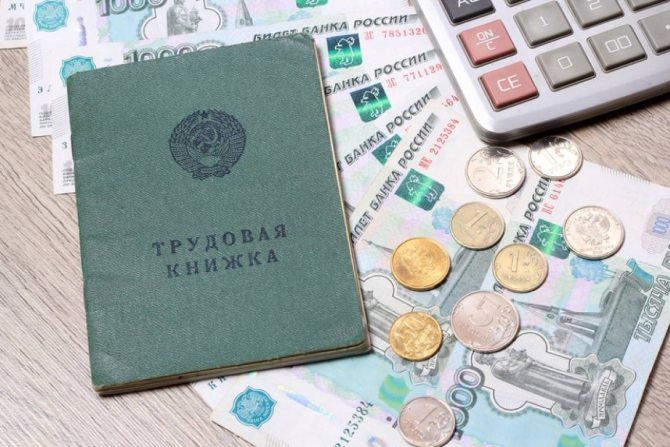
This is not Indian summer
If in Russia it is customary to wait for August with caution, then autumn is expected with sadness.
Our branches of government, at least two of the three, legislative and executive, regularly try to make fall a time of hope for retirees. But it usually turns out like Chernomyrdin’s - that is, as always. Starting this note, I planned to describe in sufficient detail what real amounts should be expected after the October pension innovations are adopted. I counted at least six of them, but now it looks like I’ll have to give up the details.
But only because the other day it was proposed to give up something else - the funded part of pensions. Moreover, it was proposed not by anyone, but by trade unions, which immediately almost stumped me. I registered my savings thousands quite a long time ago, and a very unpleasant aftertaste remains from those times. As they say, you got it - and shut up.
I’m not going to blame the trade unions for being ready to cave in once again. But the real benefit from the primitive abolition of many years of savings can only be received by future generations of pensioners: in order to save something voluntarily, it just takes time. And the decision is being imposed on those who will be left without the funded portion right now.
However, how can you even be left without something that already doesn’t exist? In fact, no money has been contributed to the funded part of the pension for almost six years. All 22% goes to the formation of the insurance part of pensions. It is proposed to transfer the funded part to a voluntary-compulsory form, which we have already written about (“Pensions after the reform: what other guarantees?”).
It seems that they are simply going to forget about what was accumulated earlier. But for those who once had a good “white” salary, the loss of the funded part turned out to be very sensitive: they were simply equated with those who never had good earnings, or they received almost everything they earned in envelopes.
The desire to simplify the system for calculating pension savings and make it more transparent and understandable is understandable, but people know only too well which road is littered with good intentions. It is characteristic that trade unions came up with the initiative to abandon compulsory accumulation, but the Minister of Finance, who in our country is even considered “Mr. No”, objects to them.
You can’t argue with Anton Siluanov: people really need to first “create opportunities so that they save for their retirement and have a minimal reduction in their income after retirement.” But is it worth turning the abolition of the funded part into a primitive taking away of what was once honestly earned?
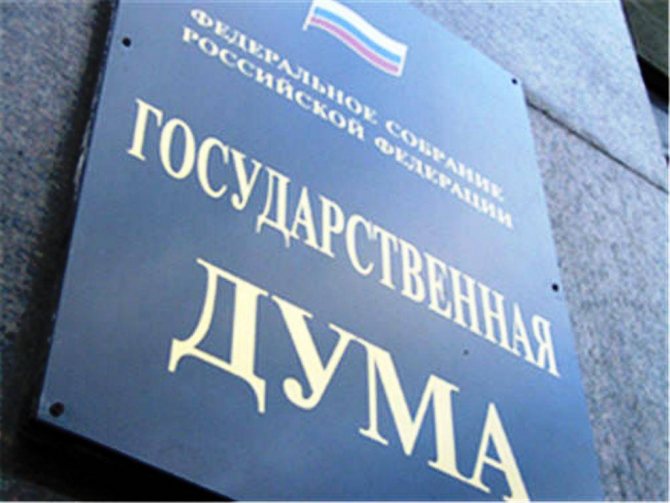
It's just autumn
Well, now about six big changes, which, by all indications, can really only affect a select few from among those who have left and are retiring.
I wrote “Honored” not out of habit or because of tradition, but because the biased media still managed to drive into the heads of millions of our working people the thesis that more than 40 Russian pensioners are nothing more than their parasites. After all, it was under this sauce that officials and the press, mainly central television channels, presented the big pension reform to the general public, which, in my opinion, conveniently failed. They also tried to justify the key provision of the reform - raising the retirement age.
It seems that nothing will help to cancel the pension reform, which, even if fully implemented, will remain a failure. Even when a successor settles in the Kremlin, and this will happen anyway, since the guarantor is not eternal, no one will cancel anything. Continuity of power does not imply this.
So, I easily found the upcoming pension changes on the State Duma website, where everything is published, right down to the program for the autumn session. And the first, perhaps at least a little bit encouraging, I would say is the attempt to return indexation of pensions to working pensioners.
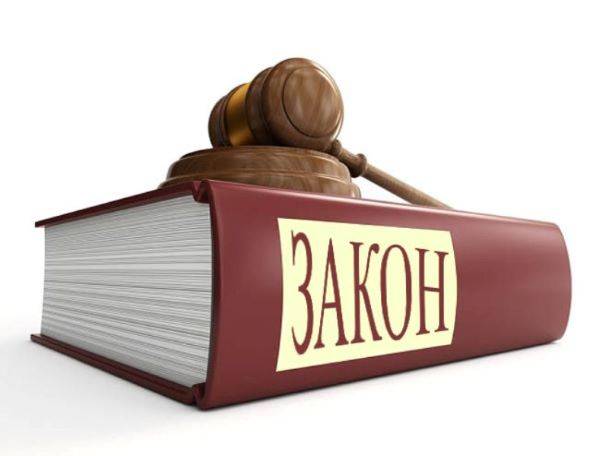
Even the authorities have to admit that working pensioners are not to blame for the fact that they work. A very old and very good friend of mine recently celebrated his 85th birthday. He works in one of those industries that functioned properly during quarantine, but I won’t specify so that he doesn’t get fired.
However, it is actually more expensive to fire him: this man is something like a walking encyclopedia. Only he remembers what was once done at almost all the facilities of the huge industry, mainly in the CIS and Baltic countries. Only he (it just so happens, since everyone who is younger has long fled in all directions) is able to figure out what was done there in the years after the collapse of the USSR.
But this patriarch, with a good salary, is really offended because his pension, not the smallest one, was not indexed for four years. He never counted on the Luzhkov-Sobyanin compensation, but he still expected an honest settlement from the Pension Fund. Now, it seems, he has waited.
Let me remind you that indexation was “frozen” not so long ago - in 2020, citing the Pension Fund budget deficit. Since then, reforms have been carried out, but the deficit has not yet been eliminated. But... What is the fault of working pensioners who, by the way, continue to work and continue to contribute something to the same Pension Fund?
Is it really possible that if we force them all into retirement, the Pension Fund will immediately receive more funds and there will already be enough for indexation? As Vovochka said in jokes that have long since become political: where is the logic, where is the reason?
After all, indexation for non-working pensioners seems to be carried out annually by the amount of inflation in the country. And it seems that the insurance pension after indexation increases by about one thousand rubles.
Why “seemingly”? Yes, because I personally didn’t notice any annual thousand in my accounts. There were kopecks, once even 553 rubles 78 kopecks came out, but I won’t confirm anything with documents, so as not to frighten my provincial comrades in misfortune. As a rule, they didn’t even see this.
But it’s not all about the pennies. Thanks to our parliamentarians for the fact that they want to finally abolish all restrictions for employed pensioners and index their pensions, taking into account all missed indexations.
And they are even ready to take into account the amount of the fixed part of the pension. At the moment it is equal to 5686 rubles and 25 kopecks. And one more thing: deputies will definitely not forget the cost of a pension point this year - as much as 93 rubles. Recalculate your points urgently, comrades.
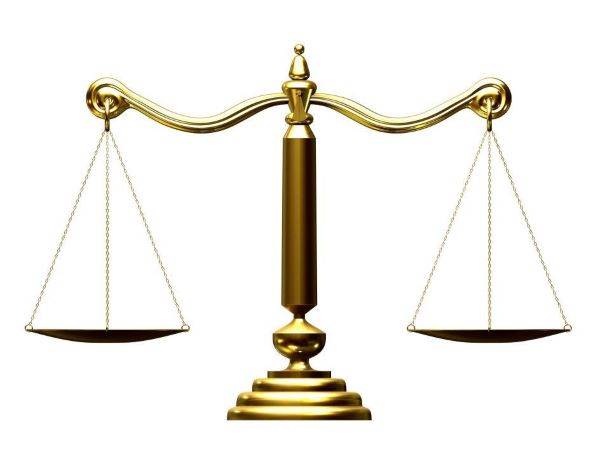
From two to six
I remembered the points for a reason, because they are discussed in the second October legislative initiative regarding pensions.
In order to receive an insurance pension, you must have a sufficient number of pension points. Legislators not long ago adopted a standard of 30 pension points, but they required very large salaries, which most people in Russia have never even seen. Now it is proposed to reduce the minimum number of points required to calculate an insurance pension. Reduce immediately by half - to 15 points.
I will leave this without comment, since 15 points is almost one and a half thousand rubles. However, when we were campaigning for reform, we were presented with an annual increase of a thousand rubles, which is somehow not visible yet, as the greatest benefit.
About the third innovation. The deputies want to give another pleasant surprise to those pensioners who care for group I disabled people. They seem to be able to actually retire as early as 50 years old if they are women, and at 55 years old if they are men.
But this is only possible if men have 20 years of work experience and women have 15 years of work experience. And the latter, when caring for seriously ill patients for many years, is a rather serious problem.
But whether the deputies will remember the extremely complex mechanisms for paying meager care benefits, I cannot say yet. One can only hope for this, as well as hope that the very topic of retiring earlier than the new deadlines, which the reform so mercilessly pushed forward, will remain relevant for legislators for years to come.
Innovation number four indicates that the Russian parliament has not forgotten about combat veterans who officially participated in military clashes on the territory of the USSR, the Russian Federation and other states. And they are required by law to retire early.
But we are talking here only about veterans who went into the reserve or resigned when their conscription or contract service expired. And besides, they have the right to an old-age insurance pension. For women, the retirement age is fifty-five years, for men - sixty. As it was with everyone before.
Military pensioners who took part in hostilities, who once and for some reason were once given a decreasing rather than an increasing coefficient, have also not been forgotten. Mockingly accurate - 0.7368. Downgraded for what? Because he fought, and could go there for three years? Here is the fifth parliamentary innovation.
And the last, sixth update of pension laws - deputies are ready to include time in the army in their length of service. I also have to say: finally. Men with extensive work experience, over 42 years of age, will be able to retire early, two years earlier, and if they served in the navy, then probably three years earlier. I think it’s just a thank you from them, without reservations.

